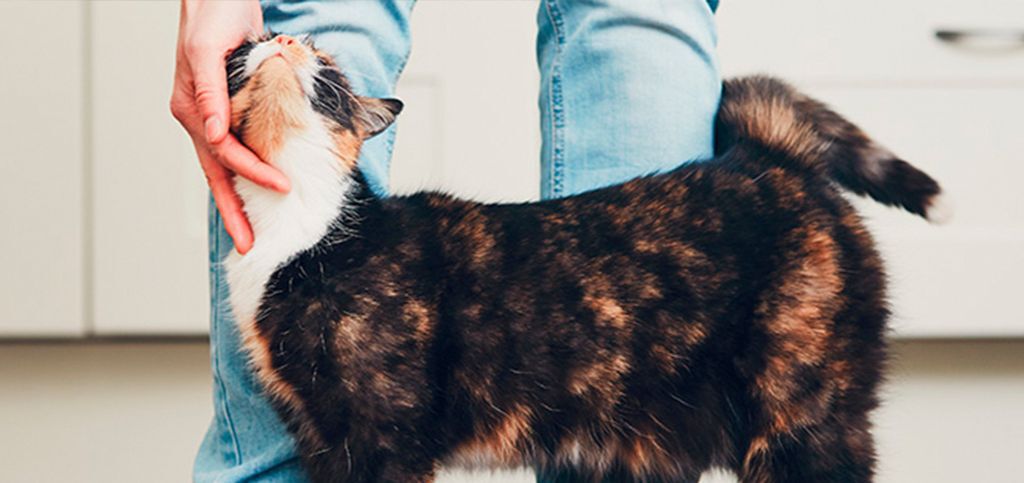Living with a cat in heat can be complicated. In this article we explain how to recognise the symptoms, how long they last, and if your cat’s on heat what you can do to make life better both for her, and for yourself as well.
What is 'heat', and how long does it last in cats?
Heat is a female cat’s fertile period, the part of her reproductive cycle when she tries to get pregnant. You cat will usually have her first heat at 6-9 months, although for some kittens it can be as early as 4 months, or as late as 12, depending on when they were born. This is because generally cats only go in heat during the months with the longest hours of daylight.
Normally, from spring until autumn your cat will go into heat every two or three weeks, although if she lives indoors, she may have unpredictable heat cycles throughout the year due to the artificial light.
A female cat’s reproductive cycle is divided into different stages, which may be longer or shorter depending on each individual cat:
- Proestrus: at this stage, which lasts for 1 or 2 days, your cat’s behaviour starts to change.
- Heat: this is the time of greatest change, when your cat will be desperately seeking a mate. Heat usually lasts for between 2 and 6 days, but can last as long as 12.
- Interestrus: the 8-15 day period between two heats.
- Anoestrus: this is the resting stage, which usually lasts for the 3 or 4 coldest months.
Now that you have the basic information, we’ll explain all the changes you’ll notice in a cat in heat, and what to do if your own cat is in heat.
How do you know that your cat is in heat?
Although cats don’t bleed when they’re on heat, the signs are pretty clear:
- She’s very affectionate (even overly so). She rubs herself against you and the furniture.
- She meows a lot, both day and night. When you have a cat on heat, the most frequently asked question is what to do to stop this.
- She tries to get your attention, rolling on the floor at your feet.
- When you touch her, she arches her back, stretches out her front legs, and raises her tail.
- Due to stress, her appetite may decrease.
- She tries to get out into the street to look for a mate (don’t let her, unless you want to grow your feline family!).
- She may spray the house with urine, to leave a scent trail aimed at toms.
Your cat is in heat: How to best look after her
If your cat’s in heat, then what to do to get her (and yourself) through these days is essential information. It’s a question of experimenting to find out what works best for you, but all the advice below will help:
- Making lots of fuss of her, brushing her and playing with her can help to keep her occupied.
- Warmth can calm heat related behaviour. A warm quiet room, putting a blanket, or one of those bean bags that you warm in the microwave next to her can help.
- Cat pheromone sprays, diffusors or collars (these mimic pheromones secreted by cats to calm themselves, among other things) will help to reduce stress.
- It’s good idea to clean out her litter tray more often, and to remove any traces or urine she may have left around the house, as if not this can encourage her to spray more. Enzymatic cleaners are very good for getting rid of odours.
These tips will help to moderate your cat’s behaviour when she’s in heat. But what do you do if you don’t want to have kittens? The best thing to do is to sterilise your cat as soon as possible, as in this way as well as avoiding the inconveniences we’ve mentioned above, and having kittens, you’ll reduce the probability of mammary cancer (by 95% if you do it before her first heat cycle, and by 85% if it’s done between the first and second cycles).
If you do decide to sterilise your kitten, there are specific foods that will help you to keep her healthy at this new stage of her life.
Understanding what it means to have your cat in heat, and what to do to calm her down can help both of you to get through these days in the best way possible. Although as previously mentioned, if you don’t want kittens, sterilisation is the best option.
 Copy link
Copy link
 Publish on Facebook
Publish on Facebook
 Publish on Twitter
Publish on Twitter
 Publish on WhatsApp
Publish on WhatsApp
